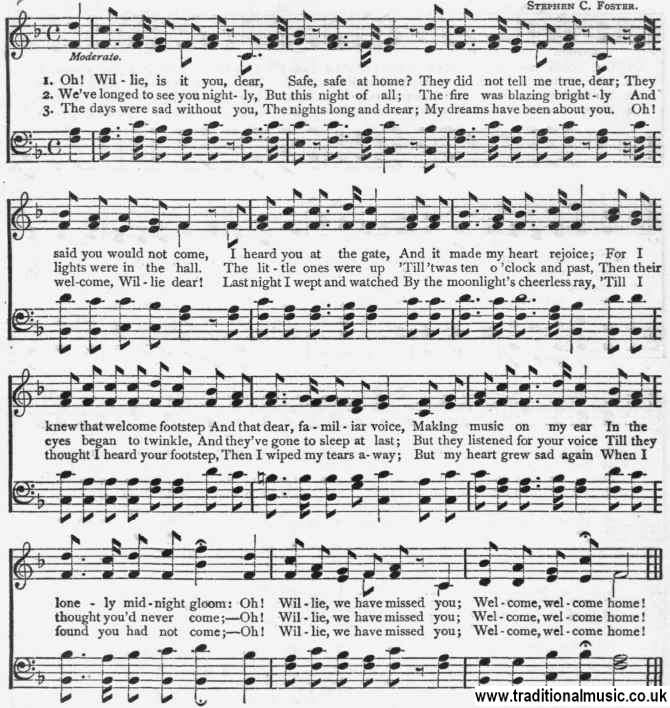Favorite Songs and Hymns For School and Home, page: 0164
450 Of The World's Best Songs And Hymns, With Lyrics & Sheet music for voice & piano.
| Share page | Visit Us On FB |
|
Cincinnati they were introduced into its concert halls, and there became known to W. C. Peters, who at once requested copies for publication. These were cheer�fully furnished by the author. He did not look for remuneration. For " Uncle Ned," which appeared in 1847, he received none; "O Susanna! " soon followed, and " imagine my delight," he writes, " in receiving one hundred dollars in cash! Though this song was not successful," he continues; "yet the two fifty-dollar bills 1 received for it had the effect of starting me on |
my present vocation of song-writer." In pursuance of this decision, he set himself to work, and began to pour out his productions with astonishing rapidity. Out of the list, embracing about one hundred and fifty of his songs, the most flatteringly received among his negro melodies were those already enumerated, followed by "Nelly was a Lady," in 1849; "My Old Kentucky Home," and "Camptown Races," in 1850; "Old Folks at Home" in 1851; "Massa's in the Cold Ground," in 1852; "Oh, Boys, Carry me 'long," in |
||
|
WILLIE, WE HAVE MISSED YOU. |
|||
 |
|||
|
1853; "Hard Times come again no more," in 1854; "Old Black Joe," in i860. In all these compositions Poster adheres scrupulously to his theory adopted at the outset. His verses are distinguished by a naiveti characteristic and appropriate, but consistent at the same time with common sense. Enough of the negro dialect is retained to preserve distinction, but not to offend. The sentiment is given in plain phrase, under homely illustration; but it is a sentiment nevertheless. The melodies are of twin birth, literally with the ver- |
ses, for Foster thought in tune as he traced in rhyme, and traced in rhyme as he thought in tune. That he had struck upon the true way to the common heart, the successes attending his efforts surely demonstrate. His songs had an unparalled circulation. Artists of the highest distinction favored him with their friendship. Herz and Sivori, Ole Bull and Thalberg, were alike ready to approve his genius, and to testify that approval in the choice of his melodies as themes about which to weave their witcheries of embellishment. Complimen'- |
||